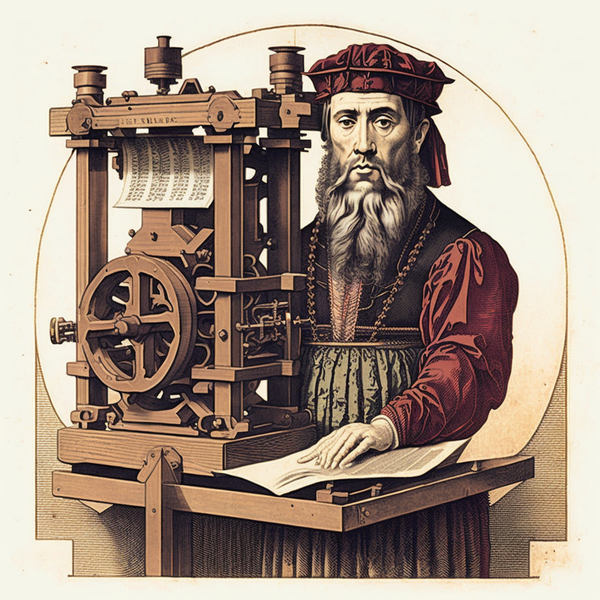Guttenberg invented the printing press

Johannes Gutenberg invented the printing press with movable type in the mid-15th century, and while his specific motivations are not extensively documented, several factors likely influenced his invention:
Economic Considerations: Gutenberg, who was a goldsmith by profession, saw the potential for a more efficient and cost-effective method of producing books. Hand-copying manuscripts was a labor-intensive process that limited the availability of books, making them expensive and accessible only to a privileged few. The printing press had the potential to revolutionize book production by significantly reducing the time and cost involved.
Desire for Mass Production: Gutenberg's invention was driven by the desire to produce books on a larger scale. The movable type system allowed for the rapid printing of multiple copies of a text, enabling mass production in comparison to the slow and meticulous process of manual copying.
Technological Innovation: Gutenberg was an innovator who combined existing technologies to create something new. He integrated movable metal type, an oil-based ink, and a mechanical press to develop a printing system that could efficiently reproduce written content.
Cultural and Religious Context: The 15th century was a time of cultural and intellectual ferment, with the Renaissance underway and a growing interest in classical literature, philosophy, and the sciences. Additionally, the Reformation, a movement for reform within the Catholic Church, would soon emerge. The printing press played a crucial role in disseminating ideas and information related to these cultural and religious movements.
Impact on Literacy: The availability of books produced by the printing press contributed to a broader dissemination of knowledge. As books became more affordable and accessible, literacy rates began to rise, fostering a more educated and informed society.
While Gutenberg's motivations may not be fully known, the printing press he invented had a profound and lasting impact on human history. It transformed the way information was produced, shared, and consumed, paving the way for the democratization of knowledge and the spread of ideas that shaped the course of the Renaissance, Reformation, and beyond.
Thank you,